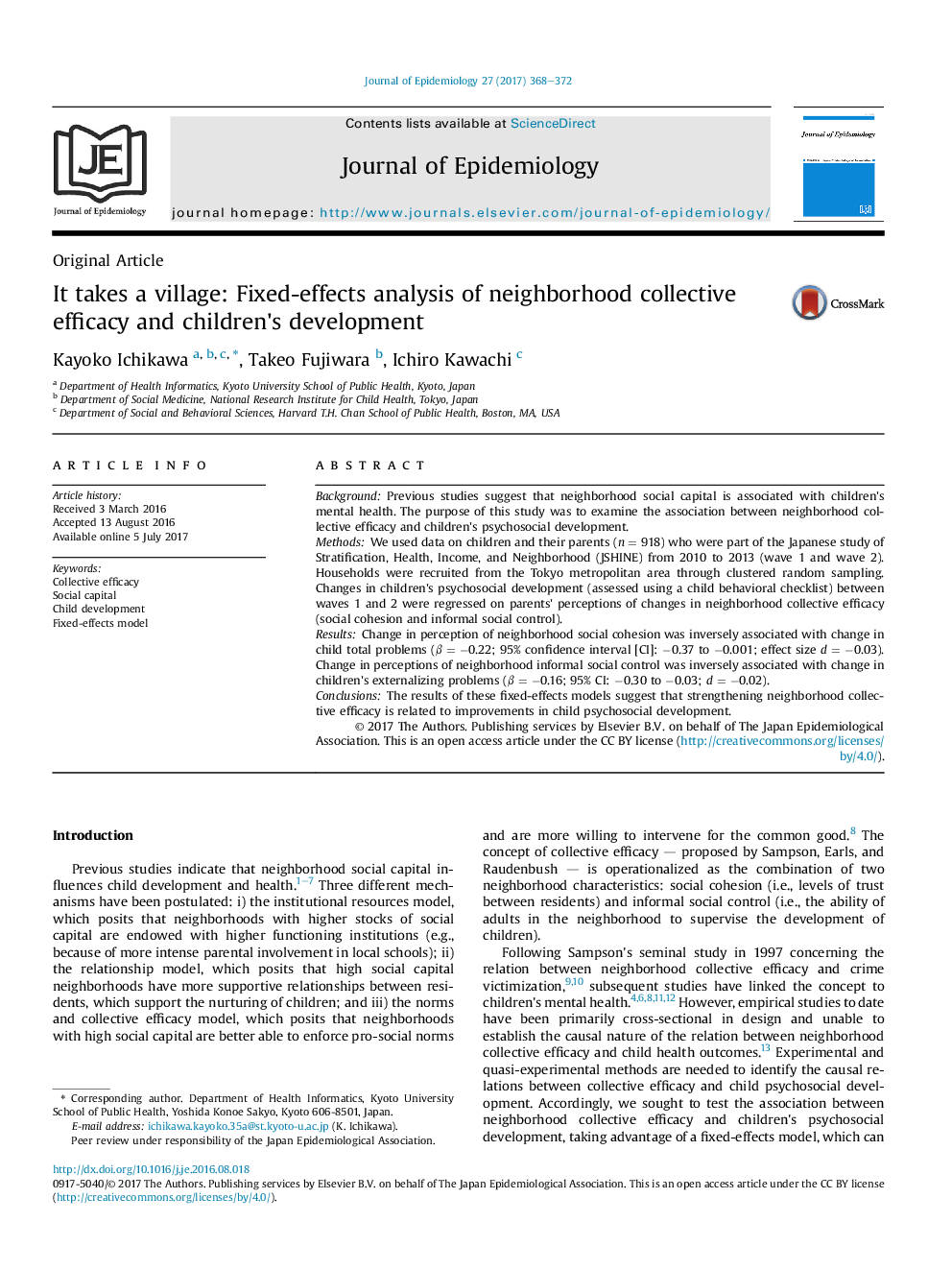| کد مقاله | کد نشریه | سال انتشار | مقاله انگلیسی | نسخه تمام متن |
|---|---|---|---|---|
| 5789461 | 1415871 | 2017 | 5 صفحه PDF | دانلود رایگان |
- The fixed-effects model can control for time-invariant confounding factors.
- Neighborhood social cohesion was inversely associated with child total problems.
- Neighborhood informal social control was inversely associated with child problems.
- Neighborhood collective efficacy prevents child psychosocial problems.
BackgroundPrevious studies suggest that neighborhood social capital is associated with children's mental health. The purpose of this study was to examine the association between neighborhood collective efficacy and children's psychosocial development.MethodsWe used data on children and their parents (n = 918) who were part of the Japanese study of Stratification, Health, Income, and Neighborhood (JSHINE) from 2010 to 2013 (wave 1 and wave 2). Households were recruited from the Tokyo metropolitan area through clustered random sampling. Changes in children's psychosocial development (assessed using a child behavioral checklist) between waves 1 and 2 were regressed on parents' perceptions of changes in neighborhood collective efficacy (social cohesion and informal social control).ResultsChange in perception of neighborhood social cohesion was inversely associated with change in child total problems (β = â0.22; 95% confidence interval [CI]: â0.37 to â0.001; effect size d = â0.03). Change in perceptions of neighborhood informal social control was inversely associated with change in children's externalizing problems (β = â0.16; 95% CI: â0.30 to â0.03; d = â0.02).ConclusionsThe results of these fixed-effects models suggest that strengthening neighborhood collective efficacy is related to improvements in child psychosocial development.
Journal: Journal of Epidemiology - Volume 27, Issue 8, August 2017, Pages 368-372
